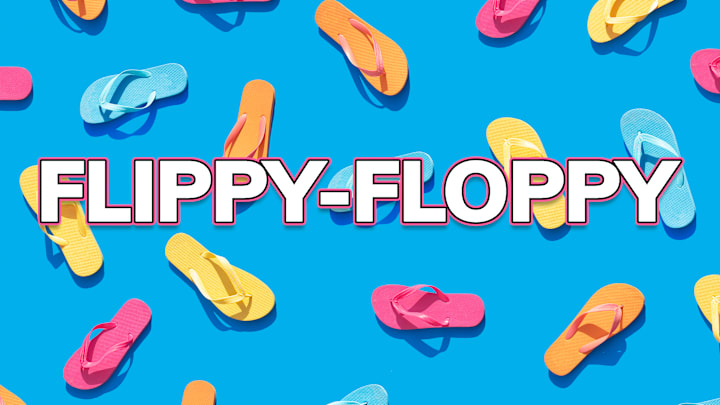You may not like jibber-jabber or when life turns helter skelter, but it’s hard not to like words created by what linguists call “reduplication.” Sadly, not all reduplicative words, despite their charm, catch on. Here’s a look at 12 that deserve to be rescued from their mostly forgotten place in lexical history.
1. Pribble-prabble
This word, which has been around since the 1500s, has the same meaning as its root, pribble, which is defined as “an argument or quarrel, especially one that’s petty or insignificant.” The expression pribbles and prabbles means the same. Needless to say, every comment section in the multiverse is full of pribble-prabble.
2. Curly-murly

This word from the 1700s basically means “really curly,” so feel free to use it the next time you see someone with next-level curls. Curly-murly could also come in handy when making coiffure requests of well-read hairdressers.
3. Evo-devo
Evo-devo first appeared in a 1997 issue of Science magazine, and it has a more scientific sense than the rest of the list: “Rudolf Raff and other pioneers have joined forces to create a young field called evolutionary developmental biology, or ‘evo-devo.’” So technically, evo-devo is an abbreviation, but it walks, talks, and looks like a reduplication.
4. Fingle-fangle
This term is related to newfangled, which conveys a dismissive attitude toward new stuff, suggesting it’s a bunch of bells, whistles, and crapola. A fingle-fangle is either a piece of junk or an idea so whimsical and insubstantial that it’s barely worth discussing. The OED’s oldest example—from 1652—includes the phrase fingle-fangle fashion, which is fitting. Anything fashionable is probably not going to last.
5. Flaunt-a-flaunt

Resembling words like rub-a-dub and pit-a-pat, the 16th-century term flaunt-a-flaunt was often applied to birds—or people who strutted like birds. An excessive touchdown celebration could be considered a flaunt-a-flaunt display.
6. Gibble-gabble
This word for meaningless babbling dates back to the 1600s and is related to gabble, meaning “Rapid, unintelligible speech.” It can be an adjective as well as a noun, as seen in a 1693 reference to “Gibble gabble Gibbrish.”
7. Brittle-brattle
This onomatopoeic word usually refers to a rattling sound. Here’s an 1874 example recorded by the OED: “On a mild evening, the tree-toads open their brittle-brattle chorus on the edge of the pond.”
8. Bibble-babble
Bibble-babble is basically babble—it can refer to any sort of empty talk and has since the 1500s. In Twelfth Night, Shakespeare offered some sound advice: “Endeauour thy selfe to sleepe, and leaue thy vaine bibble babble.” In other words, “Shut up and go to bed.”
9. Skimble-skamble
Here’s another word that turned up in Shakespeare: In Henry IV Part 1, the phrase skimble scamble stuffe refers to nonsense.
10. Flippy-floppy
We’re all familiar with the flip-flop—a favorite exercise of all politicians—but here’s a variation with a little something extra. Flippy-floppy has been around for more than 100 years, and it still pops up here and there, like in this 2003 Australian newspaper article about a dog: “Let's face it, the Pommie with the goo-goo eyes and flippy floppy hair only ever acts as himself, a sort of feckless, loose goose with a few bob.”
11. Havey-cavey
Anything havey-cavey is uncertain or dodgy in some way. The origin of the term is itself havey-cavey, but it might be related to the word haver, a verb meaning “To talk foolishly or inconsequentially.” An 1891 glossary example shows that havey-cavey-ness can be a serious matter: “A young man who was very ill was said to be in a very havey-cavey state, tottering between life and death.”
12. Wibble-wobble

This alternation of wobble isn’t common, but it’s shockingly productive, spawning at least two other rare variations. Anything tottering or oscillating can be described using the phrase wibblety-wobblety, and ungainly words or movements can be called “wibbly-wobbly.” In fact, that term turns up in James Joyce’s Ulysses in an expression that needs to be used more often: “Bless me, I'm all of a wibblywobbly.”
A version of this story ran in 2016; it has been updated for 2023.
